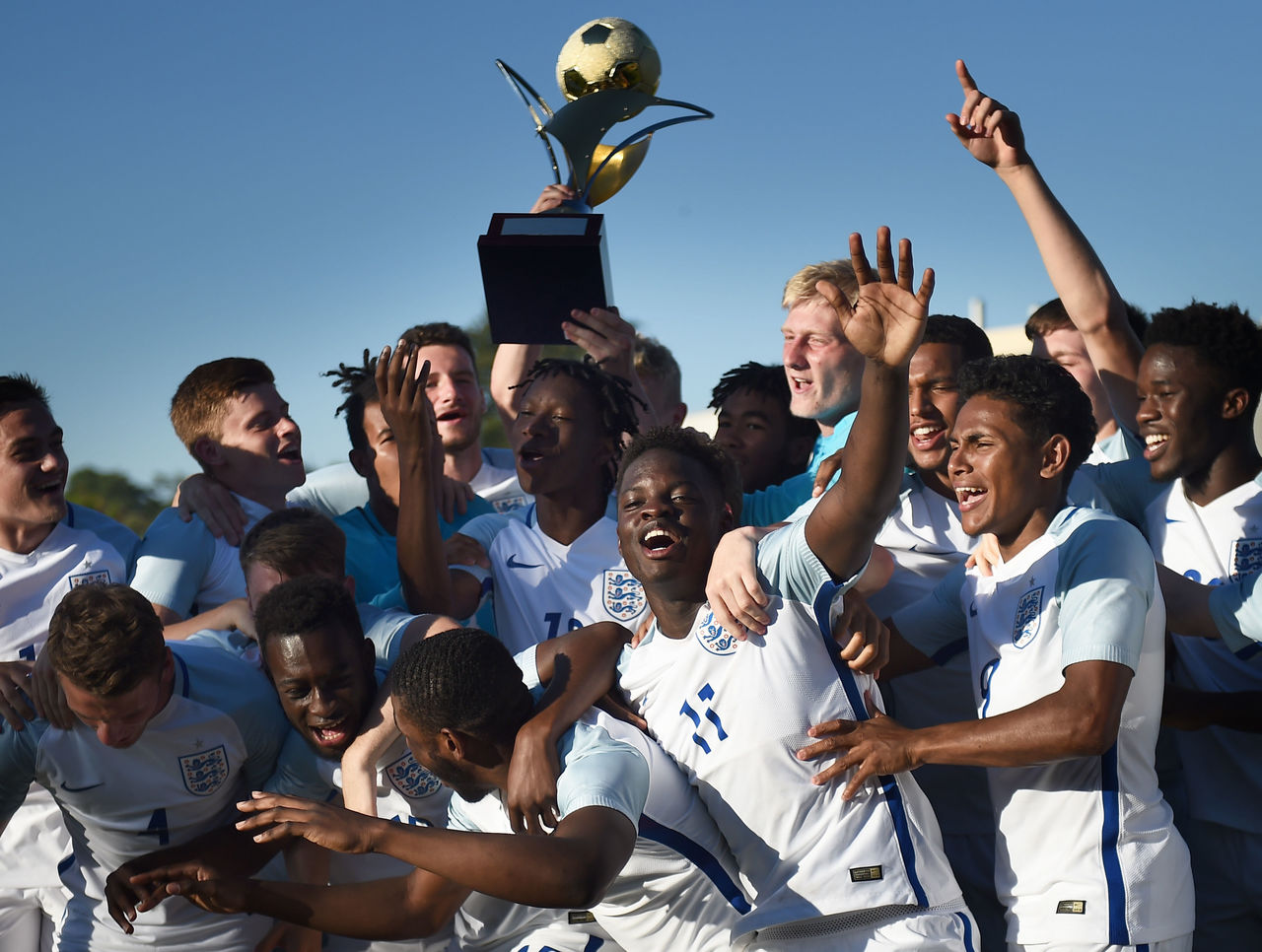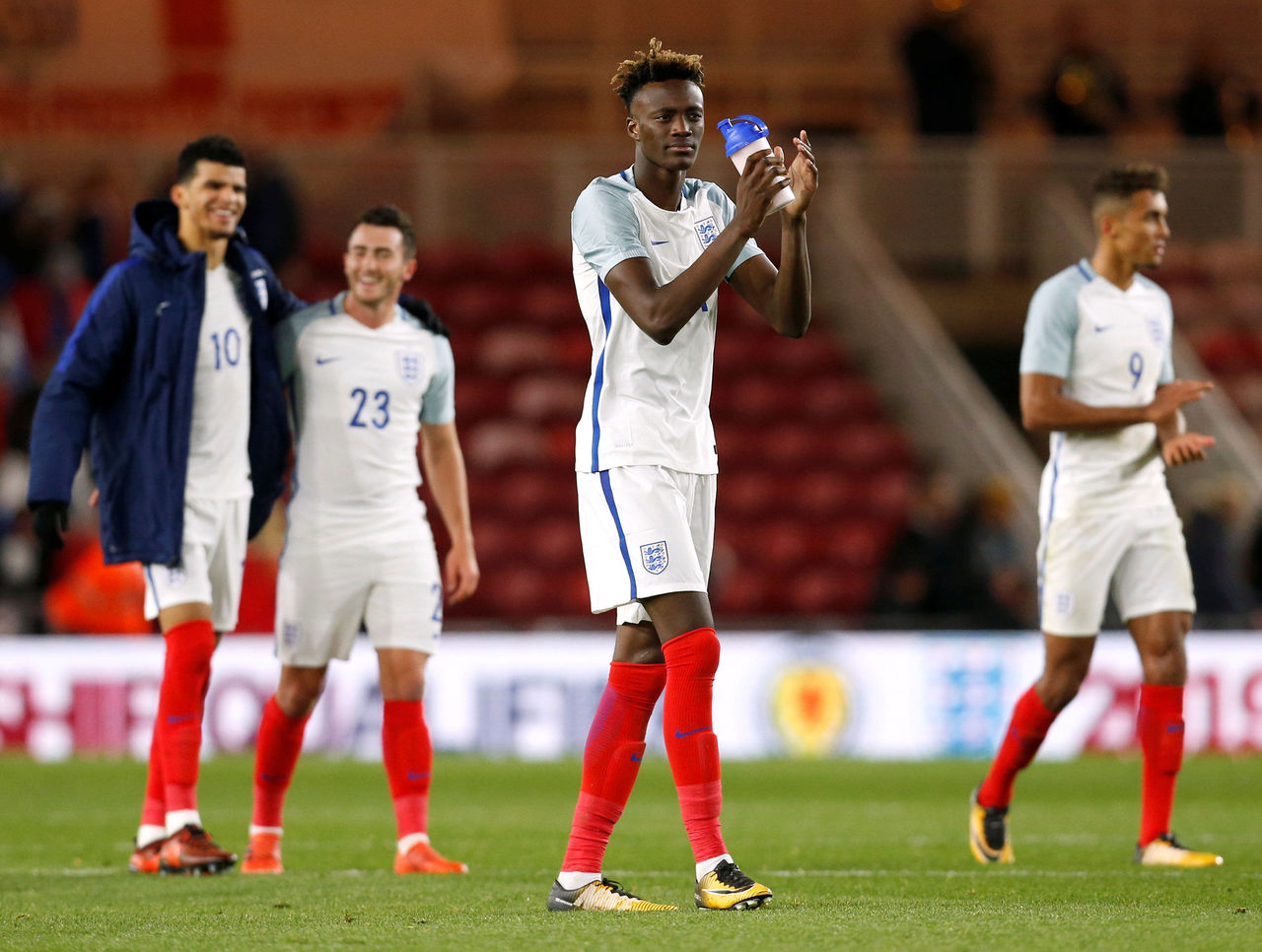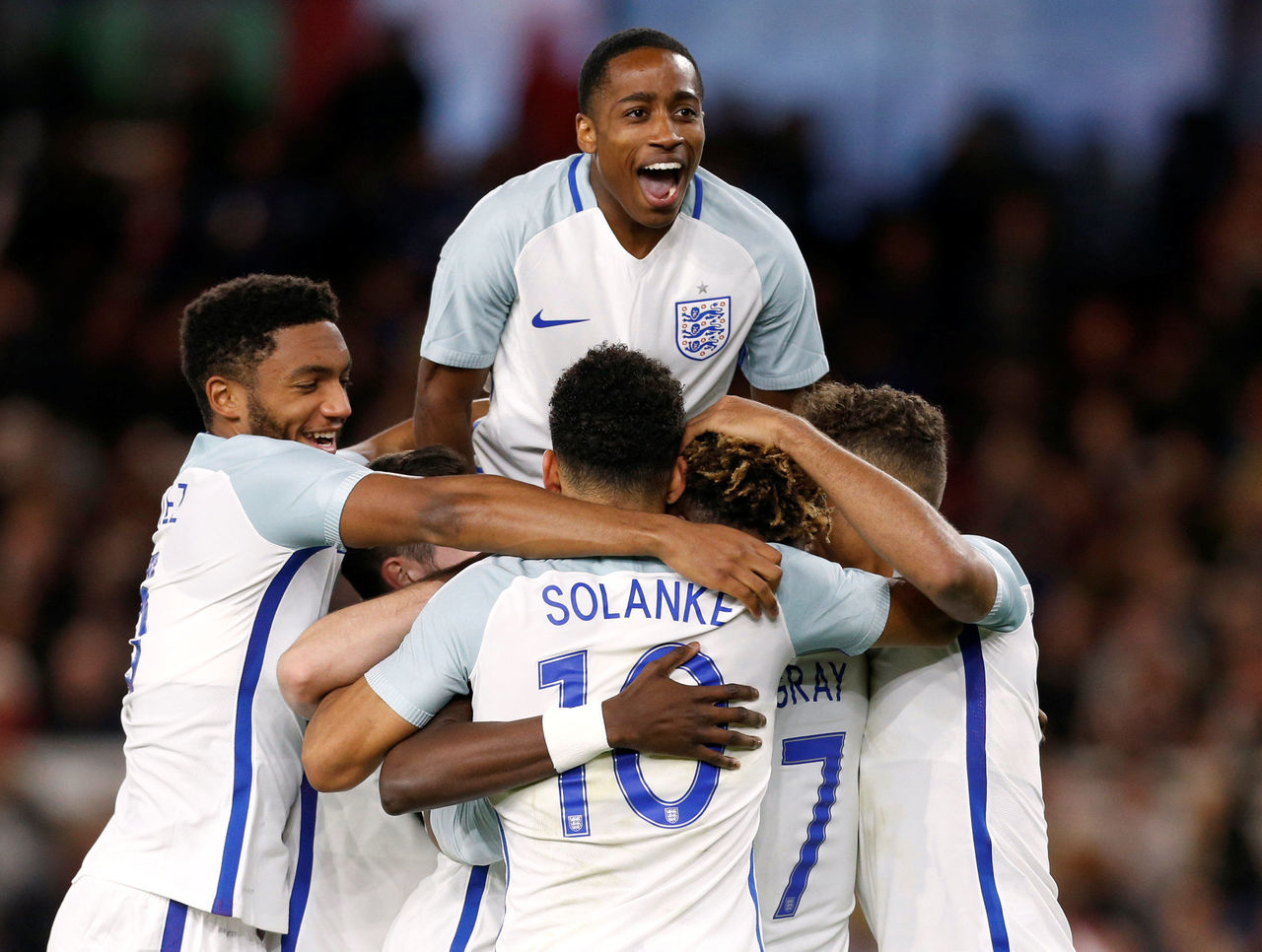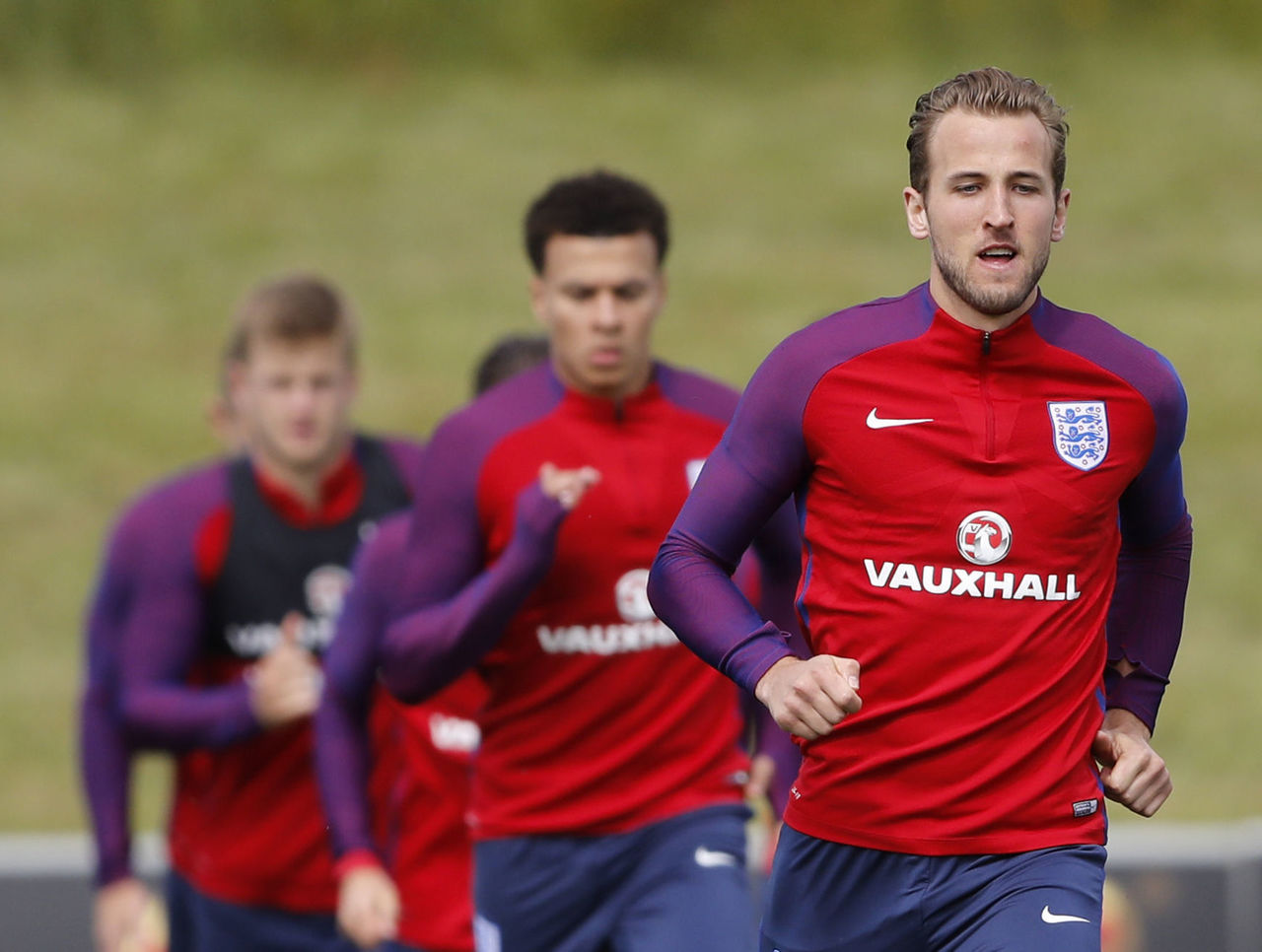Why England will win the 2026 World Cup
In international football, hope can be a perilous precursor to disaster.
For England's national team and its supporters, optimism has become an exercise in equal parts comedy and futility. Forty-plus years of near misses and calamitous collapses will do that. Forget a dominant 2018 World Cup qualifying campaign littered with victories against the likes of Malta and Lithuania - England hasn't looked decent since bowing out to eventual finalist Italy on penalties at Euro 2012.
The lack of faith in the current Three Lions set-up is merited. That absence of hope is due to years of ineffectiveness, and a Euro 2016 knockout-stage defeat to Iceland was the latest gaffe that stung with the discomfort of sea salt in a fresh wound.
With an enduringly ordinary core of stalwarts like Joe Hart, Phil Jones, and Jordan Henderson set to play leading roles in Russia, England's dismal four-decade run won't end next year.
That said, realistic expectations of success are on the horizon.
England will win the 2026 World Cup.
A summer of supremacy
It's no understatement to say the last few months of English youth football has been stunning.
The Under-17 side is 90 minutes from a World Cup win on the heels of Wednesday's dazzling 3-1 win over Brazil. This comes months after the Under-20 outfit captured England's first World Cup triumph at any level since 1966 in South Korea in June. On the continent, the Under-19 side won the European Championship in July, the Under-21 lot progressed to the semi-final stage before losing to champion Germany, and the Under-20s bludgeoned the Toulon Tournament field in stunning fashion.

Consigned to the fact that Gareth Southgate's squad in Russia won't be up to snuff, and that the 2022 tournament will be used primarily as a learning experience for a collection of young talent, 2026 will be the year.
Based on the displays of the various youth sides this summer, it's not that obscene a proposal, especially with a glance at some of the Three Lions' squads.
Starting with the Under-17s, Manchester City local boy Phil Foden has been the tournament's best player, and Liverpool's back-to-back treble scorer Rhian Brewster its best forward. Fulham's Steven Sessegnon, the brother of fellow Cottagers prodigy Ryan, has been solid, as has the likes of Rekeem Harper, Joel Latibeaudiere, Angel Gomes, and Tashan Oakley-Boothe. Combine that with absentees like Borussia Dortmund's Jadon Sancho, who booked it for the Bundesliga midway through the tourney, and Arsenal first-teamer Reiss Nelson, and the kids are world beaters. Eddie Nketiah, who on Tuesday had a two-goal dream debut for the Gunners in the League Cup, would also qualify for the team.
A little further up the pipeline, players like Toulon Player of the Tournament David Brooks (Sheffield United), Joe Worrall (Nottingham Forest), and Harvey Barnes (Leicester City) are polished. Euro Under-19 winners like Ryan Sessegnon, Mason Mount, Ben Brereton, and Dujon Sterling are also worthy of praise. And there's a core of players who've experienced both first-team football and success this summer for England who are senior internationals in the waiting - Dominic Solanke, Ademola Lookman, Dominic Calvert-Lewin, Freddie Woodman, Nathan Chalobah, Demarai Gray, and Tammy Abraham comprise just the tip of the talent-laden iceberg.

Every player mentioned is between 17 and 21 years old, meaning by the time the 2026 World Cup rolls around, England will choose from a selection of 26-to-30-year-olds who've all proved their worth at youth levels.
Youth progress a barometer of senior success
When looking to the future - especially when considering England's recent run - pragmatism reigns supreme. But that's not to say accolades at a youth level don't translate to senior successes.
The further up the age aqueduct one looks, the better indicator junior sides are of future achievement. Recent World Cup winners Germany and Spain have tasted triumph at youth levels. Same for powers like Brazil, Argentina and France.
Les Bleus' Under-20 World Cup-winning squad from 2013 featured names like Paul Pogba, Samuel Umtiti, and Kurt Zouma. Two years earlier, Brazil won the biennial contest with a roster including Philippe Coutinho, Oscar, Danilo, Casemiro, and Alex Sandro. Even the 2007 Under-20 World Cup in Canada was littered with future stars like Alexis Sanchez, Angel Di Maria, Luis Suarez, Edinson Cavani, Arturo Vidal, Gerard Pique, and Sergio Aguero.

On the continental front, past European tournaments have witnessed the emergence of several first-team stars. Germany's 2009 European Under-21-winning side was a who's who of eventual World Cup winners including Mesut Ozil, Manuel Neuer, Jerome Boateng, Sami Khedira, and Mats Hummels.
While there's no guarantee that the prosperity of youth teams will translate to senior success - with Mexico and Nigeria two recent examples - there's still enough of a sample size to indicate that the exploits of the juniors will spell out forthcoming awards. One of Spain or Germany has been in nine of the last 11 European Under-17 finals, and Brazil, Argentina, and La Furia Roja have been in 12 of the last 14 Under-20 World Cup finals. Couple that with the fact that the last two Euro winners, Spain and Portugal, appeared in the final of the previous year's Under-21 version, and there's enough proof to suggest that England - the only nation to reach the semi-final stage of the last five youth contests - is primed for future success.
Current leftovers
All of this begs one question: when will England peak?
The hysteria surrounding Wednesday's Under-17 semi-final victory over Brazil had pundits pegging the 2022 World Cup in Qatar as the one to aim for. The problem with that comes down to the age of the core English players, the average age of past World Cup winners, and the desire for a learning experience that the 2022 installment will provide.
That's why the 2026 edition is the one to target.
By then, the aforementioned litany of Englishmen will be between 26 and 30 years old. Current stars Harry Kane and John Stones will both be 32, as will Everton shot-stopper Jordan Pickford. Dele Alli, currently 21, Marcus Rashford (19), Raheem Sterling (22), and Harry Winks (21) should all be in the national team picture, and assuming the deep talent pool continues to produce young English footballers at a rate comparable to the current one, a few kids mixed in should give the Three Lions an average age between 27 and 29.

The last World Cup winner, Germany, boasted an average age of 26.3, while finalist Argentina was 28.9. These metrics are also consistent with previous sides to have enjoyed success on the world stage. 2010 winner Spain had an average age of 27.3, and Italy won four years earlier with a squad standard of 29.6.
Of course, when a group of players is brandished with the "Golden Generation" moniker, the pressure to avoid disaster is heightened. Previous star squads like Germany, Spain, France, and Brazil have not disappointed, capturing World Cups and continental honours. But not so much for England, whose roster between 2001 and 2010 was expected to succeed. Names like Beckham, Gerrard, Lampard, and Rooney highlighted Three Lions sides that perpetually underwhelmed, bowing out of every major tournament at the quarter-final stage or earlier.
Those setbacks, and the blunders that preceded them, are why having hope in the English national team has seemingly become an exercise in futility. But even with that doom and gloom, a new generation is providing plenty of reason for optimism.
At long last, there is aspiration and belief in England's national team - the 2026 World Cup winner.
(Photos courtesy: Getty Images)
HEADLINES
- Dutch club Vitesse relegated after being docked 18 points for ties to Abramovich
- Man United's shake-up continues with Wilcox joining as technical director
- Guardiola: Palmer wanted to leave Man City for 2 seasons
- Everton must 'give more' in survival fight, says Dyche
- Man City suffer Haaland injury scare before FA Cup semi, De Bruyne fit